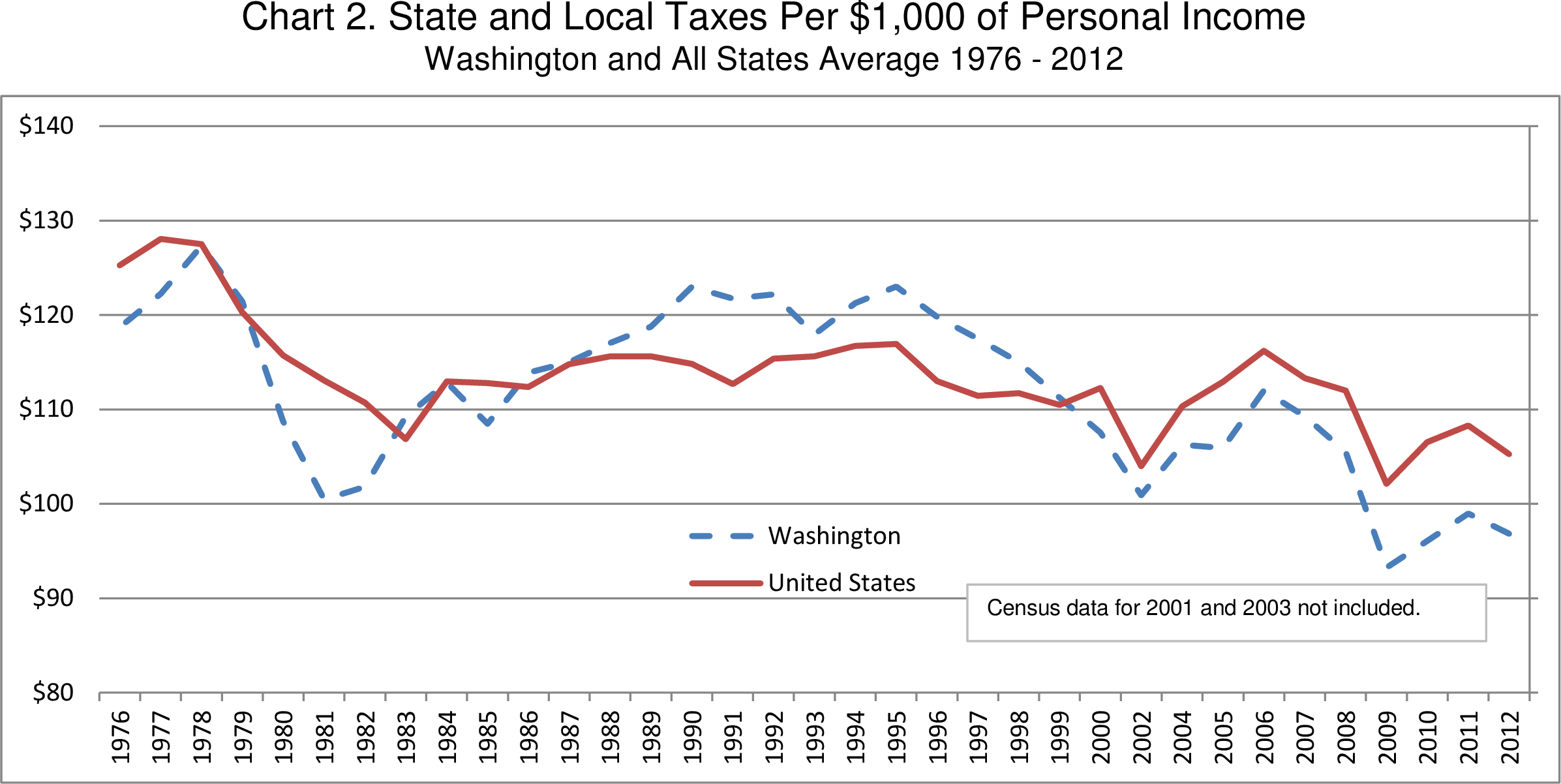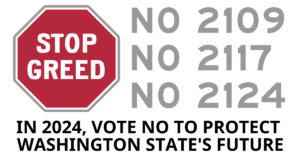Irked by a letter to the editor published by The Herald of Everett, initiative profiteer Tim Eyman this morning sent out an email to his followers ridiculing elected representatives and civic leaders over their opposition to I-695 (on the ballot in November of 1999), which wiped out billions of dollars in funding for public services following its implementation by the Legislature in 2000.
“[F]or nearly a decade, our initiative was blamed for most everything. ‘Heavy rainfall in Seattle caused by I-695’ — ‘I-695 spurs riots in LA’ — ‘Earthquake in East Timor exacerbated by I-695’. Our opponents couldn’t get enough of it. But eventually, their silliness eventually dissipated,” Eyman wrote in his email.
To NPI’s knowledge, no one opposed to I-695 has blamed it for out-of-state civil unrest, bad weather, or earthquakes abroad. However, Eyman’s I-695 has been blamed — and deservedly so — for having made our tax code more regressive and weakened the vital public services which our tax system funds.
The devastating impacts of I-695 are no laughing matter, nor were they overstated by Lynnwood’s Jerry Fraser in his letter to the editor.
Before I-695 was reinstated by Governor Gary Locke and lawmakers, the state-level MVET was projected to bring in more than one and half billion dollars during the 2001-2003 biennium, as noted by the Office of Financial Management (OFM) in its 1999 fiscal impact statement:
In the aggregate, I-695 would reduce motor vehicle taxes and fees by up to $1.1 billion in the 1999-01 Biennium and by up to $1.7 billion in the 2001-03 Biennium… As detailed on Table 1, the initiative would eliminate up to $1.1 billion in state revenues in the 1999-01 Biennium and up to $1.7 billion in the 2001-03 Biennium, which currently support transportation, criminal justice, public health, and other programs. It also repeals the statutory method for the valuation of vehicles, as well as the distribution formulas for MVET revenue.
OFM’s analysis went on to offer a list of major public services funded by the state MVET:
- Local transit districts
- County public health account
- Distressed county assistance account
- Ferry capital construction account
- Ferry operations account
- Motor vehicle fund
- Transportation fund
- City & county sales tax equalization
- Municipal & county criminal justice
Prior to its repeal, about 47% of the statewide MVET went to state transportation, while 29% went to local transit agencies and 24% went to local governments.
Below is a compendium of four fact sheets documenting the impact that I-695 was projected to have on a selection of county and city governments throughout the state:
Passage of Tim Eyman’s I-695, and the Legislature’s subsequent decision to reinstate it after it was struck down by the State Supreme Court in the ATU case had huge ramifications (like delayed/lost bond sales), and ushered in an era of backfilling at all levels of government that went on for years.
“We’re not even close to filling the holes,” State Representative Hans Dunshee told The Seattle Times a few months after the 1999 general election. “The largest impacts of I-695 will be unaddressed. That’s going to take more working and more thinking.”
Times editors felt the fallout from I-695 was so significant and newsworthy that they established a special section on seattletimes.com to chronicle developments.
To replace the sudden, giant funding loss resulting from I-695, state agencies and local governments across Washington were forced to resort to drastic emergency measures.
Washington State Ferries was forced to hike fares dramatically (because funding for operations decreased by 58% and capital funding decreased by 70%).
The City of Mountlake Terrace stopped providing animal control.
Washington State University instructed its extension offices to begin preparing for massive budget cuts.
And the laudable goal of reducing class size and putting more money into schools fell by the wayside as the Legislature struggled to backfill the loss of MVET money.
In some cases, voters were asked to approve tax increases to replace lost funding.
In Longview, voters were asked to approve a flood control levy (and they said yes). The success of the levy mitigated one problem, but basic and essential public services still took a big hit in a Longview. The Daily News reported on November 16th, 2000:
The loss of motor vehicle excise taxes with last year’s passage of Initiative 695 hit Longview hard, and will reduce city revenue by about $1.4 million in 2001-2002, [Longview finance director Kurt] Sacha said. All city departments took cuts, and Longview police lost five officer positions in 2000.
King County Metro also went to the voters to gain back lost funding (and again, the voters said yes). Unfortunately, in Metro’s case, the mechanism the Legislature came up with to allow the agency to backfill from I-695 was an increase in its sales tax authority.
So even though the voters said yes to Metro’s request, the dot-com bust wiped out the projected revenue, as this 2010 King County Metro “System Overview” presentation explained on Slide 19 (“Funding Issues”):
- 1999: I-695 approved. Metro’s funding reduced by $110 million per year (29% of budget)
- 2000: Transit sales tax authority raised by Legislature to 0.9 percent
- 2000: 0.2 percent Metro sales tax approved
- 2000: Dot com bust: The projected sales tax growth to fund most of the service adds in the plan is lost
- Plan became largely unfunded, but included the revised allocation policy of “40-40-20
In Snohomish County, Community Transit initially responded to I-695 by laying off dozens off bus drivers. Here’s how the Seattle Times reported it:
You’re a mean one, Mr. Eyman. All the bus drivers in Whoville say so.
Whoville, of course, is where the Grinch stole Christmas. And Community Transit (CT) drivers in Snohomish County who received layoff notices on the eve of the holidays want everyone to know that Initiative 695 sponsor Tim Eyman is their Grinch.
They gathered yesterday at the Labor Temple here to tell how Eyman – and the state’s voters – took their holiday cheer.
Pink slips were handed to 90 CT drivers and other employees earlier this month, announcing layoffs effective Feb. 6. Thirty other employees will be cut from full- to part-time status. The move was made in response to a projected loss of $18.7 million, 30 percent of CT’s budget next year.
Community Transit subsequently reversed some cuts to bus service using temporary funding. County leaders warned residents at the time that the service restorations might not be permanent. And sure enough, they weren’t. Sunday service went away that same year. It was brought back in 2002, then indefinitely suspended again in 2010 along with paratransit for disabled Snohomish County residents.
Five long years went by before Community Transit brought back Sunday service.
The motor vehicle excise tax used to be a stable revenue source that transit agencies could count on. After the statewide MVET was eviscerated, transit agencies became heavily dependent on sales taxes. As anyone with a basic understanding of public finance knows, the sales tax yields less revenue during economic downturns. Downturns, however, are precisely when many people rely on public services the most.
Community Transit, Metro, Sound Transit, and other transit providers will be facing the same predicaments they’ve grappled with in the past as soon as another recession occurs. Sales tax funding will go down, and that will jeopardize essential service that people rely on.
This is one of the many long-term consequences of I-695 that Tim Eyman never wants to talk about. He may not ride the bus, but hundreds of thousands of Washingtonians do. To them, the prospect of not being able to get to their job on Sunday, or utilize paratransit service to participate in community functions, is very scary.
Tim Eyman can pretend the real and serious consequences of I-695 don’t exist, but neither we nor our elected representatives can afford to live in his fantasyland.
Washington is home to more than seven million people. By working together and pooling our resources, there is much we can accomplish. To move forward and raise our quality of life, it’s imperative that we reject Tim Eyman’s destructive agenda and reaffirm that we believe in the values that Washington was founded on. We call upon our elected representatives at all levels to work with us to undo the harm caused by Eyman’s past initiatives as well as defeat any new schemes that Eyman comes up with.



